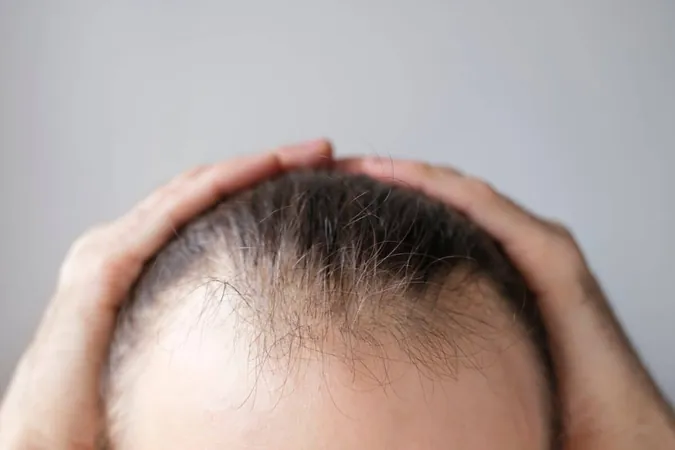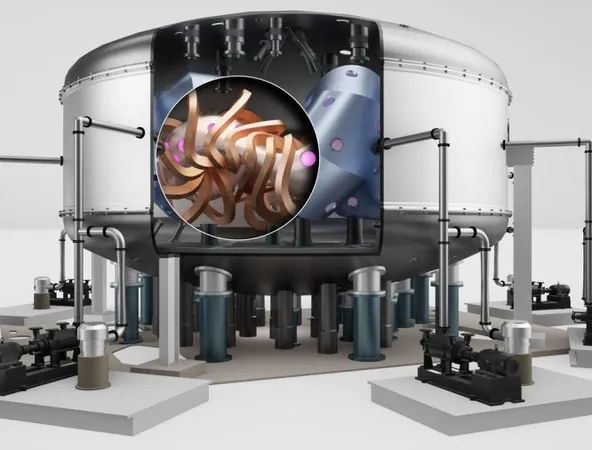
Revolutionary Discovery: Baldness May Not Be Permanent After All! Here's What Scientists Just Uncovered
2025-05-11
Author: Jacques
Scientists Unlock Major Secret Behind Hair Loss!
A groundbreaking study published in Nature Communications has revealed a vital protein that sustains hair follicle stem cells, paving the way for potential new treatments for baldness. Led by a diverse team from Australia, Singapore, and China, this research provides a fresh perspective on the complex biology of hair renewal.
The Magic Protein: MCL-1
Hair follicles undergo continuous cycles of growth, rest, and shedding, and the key players in this game are hair follicle stem cells (HFSCs). These cells rejuvenate hair after it falls out, and the new study highlights the crucial role of a protein called MCL-1. The researchers found that when MCL-1 was absent in mice, these stem cells suffered immense stress and perished, leading to an immediate stop in hair regrowth.
Nailed It: MCL-1’s Life-Sustaining Role
In experiments where scientists removed MCL-1 from adult mice, they shaved patches of fur to monitor recovery. Without MCL-1, the mice couldn’t regrow hair, while those with normal MCL-1 levels experienced seamless regeneration. This crucial finding underscores how indispensable MCL-1 is for maintaining healthy HFSC populations.
The Cellular Drama: Survival vs. Stress
Digging deeper, the team investigated what happens on a cellular level in the absence of MCL-1. While inactive HFSCs remained unharmed, once these cells activated and started to divide, they faced stress that triggered the P53 protein, which regulates cell death. Remarkably, when both MCL-1 and the P53 gene were removed, hair regrowth resumed, suggesting a delicate balance between survival and death is essential for follicular health.
The BCL-2 Family and Future Therapies
Published on March 29, 2025, the study reinforces that MCL-1 belongs to the BCL-2 family, a group of proteins that determine cell fate. Understanding this intricate regulatory mechanism is key to developing new therapies aimed at preserving HFSCs.
Targeting Signaling Pathways
In addition to MCL-1, the research also emphasizes the significance of the ERBB signaling pathway, which promotes HFSC survival by boosting MCL-1 production. The scientists believe that enhancing ERBB signaling could provide an alternative approach to activate MCL-1, as this protein cannot be effectively delivered topically.
A Hope for Alopecia Patients
Alopecia impacts about 2% of the global population at some stage in their lives, often due to various causes like autoimmune disorders and hormonal imbalances. The inability of hair follicles to regenerate plays a notable role in persistent hair loss. This new research suggests that protecting MCL-1 could be the secret ingredient to maintaining HFSC regenerative capabilities.
Looking Ahead: The Future of Hair Regrowth Research
Scientists emphasize the need for further studies to comprehend how MCL-1 functions in humans. The insights garnered from this research lay a solid foundation for exploring how MCL-1 interacts with stress pathways and external signals, such as ERBB, which could be crucial for devising treatments that either prevent or reverse baldness. Get ready, world! The future of battling baldness is looking brighter than ever!









 Brasil (PT)
Brasil (PT)
 Canada (EN)
Canada (EN)
 Chile (ES)
Chile (ES)
 Česko (CS)
Česko (CS)
 대한민국 (KO)
대한민국 (KO)
 España (ES)
España (ES)
 France (FR)
France (FR)
 Hong Kong (EN)
Hong Kong (EN)
 Italia (IT)
Italia (IT)
 日本 (JA)
日本 (JA)
 Magyarország (HU)
Magyarország (HU)
 Norge (NO)
Norge (NO)
 Polska (PL)
Polska (PL)
 Schweiz (DE)
Schweiz (DE)
 Singapore (EN)
Singapore (EN)
 Sverige (SV)
Sverige (SV)
 Suomi (FI)
Suomi (FI)
 Türkiye (TR)
Türkiye (TR)
 الإمارات العربية المتحدة (AR)
الإمارات العربية المتحدة (AR)